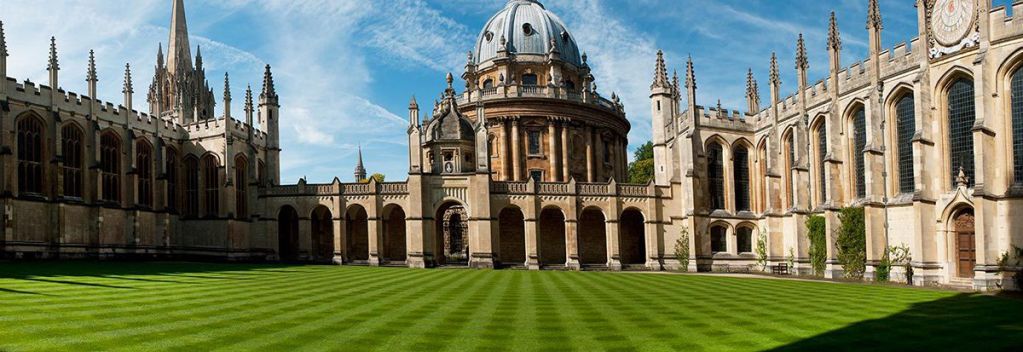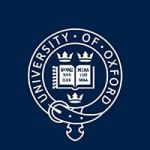
Overview
The University of Oxford is a collegiate research university in Oxford, England. There is evidence of teaching as far back as 1096, making it the oldest university in the English-speaking world and the world’s second-oldest university in continuous operation. It grew rapidly from 1167 when Henry II banned English students from attending the University of Paris. The history and influence of the University of Oxford has made it one of the most prestigious universities in the world.
The university is made up of 38 constituent colleges, and a range of academic departments which are organised into four divisions. All the colleges are self-governing institutions within the university, each controlling its own membership and with its own internal structure and activities. It does not have a main campus, and its buildings and facilities are scattered throughout the city centre. Undergraduate teaching at Oxford is organised around weekly tutorials at the colleges and halls, supported by classes, lectures, seminars, and laboratory work provided by university faculties and departments; some postgraduate teaching includes tutorials organised by faculties and departments. It operates the world’s oldest university museum, as well as the largest university press in the world and the largest academic library system nationwide.
Oxford has educated many notable alumni, including 27 prime ministers of the United Kingdom and many heads of state and government around the world. As of 2018, 69 Nobel Prize winners, 3 Fields Medalists, and 6 Turing Award winners have studied, worked, or held visiting fellowships at the University of Oxford, while its alumni have won 160 Olympic medals. Oxford is the home of the Rhodes Scholarship, one of the world’s oldest international scholarships.
23,975 Students
Location
Learning
TEF Rating

Courses Available
- Accounting, Business, Management and Marketing
- Biology and Biomedical Sciences
- Computer Science and Information Technology
- Engineering
- Foreign Studies (Language, Literature and Linguistics)
- Health Professions
- Humanities and Social Sciences
- Law and Legal Studies
- Mathematics and Statistics
- Natural Sciences
- Theology
- Visual and Performing Arts
Applying
How to Apply?
For International Students
(in lieu of IELTS)
Deadlines and Important Dates
Cost and Scholarships
Types of Scholarships Available
Scholarships
Palgrave Brown Scholarship
| Total Worth | Annual grant towards living costs worth 11,560 GBP. |
|---|---|
| Eligibility and Requirements | Students must be ordinarily resident in and/or educated in the following countries: Albania; Armenia; Azerbaijan; Belarus; Bosnia and Herzegovina; Bulgaria; Croatia; Czech Republic; Estonia; Georgia; Hungary; Kazakhstan; Kyrgyz Rep.; Latvia; Lithuania; Macedonia; Moldova; Montenegro; Poland; Romania; Russia; Serbia; Slovakia; Slovenia; Tajikistan; Turkmenistan; Ukraine; Uzbekistan. |
| Available for International Students | Yes |
| Application Deadline | February 13 |
| Other Details | Scholarships will be awarded on the basis of financial need, and academic merit will also be taken into consideration. As this is a partial award, priority will be given to students for whom this scholarship will make the most difference in being able to afford studying at Oxford. |
Reach Oxford Scholarship
| Total Worth | Course fees, annual grant towards living costs and one return air fare per year. |
|---|---|
| Eligibility and Requirements | Students from low-income countries. |
| Available for International Students | Yes |
| Application Deadline | February 13 |
| Other Details | This scheme is only suitable for candidates who have received an offer and who are of the highest academic ability. Financial need and social commitment are also major criteria for selection. Applicants should be intending to return to their country of ordinary residence following their studies. Priority will be given to students who have not studied at undergraduate level before. |
Simon and June Li Undergraduate Scholarship
| Total Worth | Course fees and a grant towards living costs. |
|---|---|
| Eligibility and Requirements | Applicants must be ordinarily resident in one of the following countries: Bahrain; Bangladesh; Brunei Darussalam; China; Hong Kong SAR; India; Indonesia; Iran; Iraq; Israel; Jordan; Kuwai; Lebanon; Malaysia; Myanmar; Nepal; Oman; Papua New Guinea; Pakistan; Philippines; Qatar; Saudi Arabia; Singapore; South Korea; Sri Lanka; Syria; Taiwan; Thailand; Turkey; United Arab Emirates; Vietnam; Yemen |
| Available for International Students | Yes |
| Application Deadline | February 13 |
| Other Details | Scholarships will be awarded on the basis of academic merit and financial need. The information that you provide in your application form will be used to assess how you meet these criteria. For the first award, preference will be given to applicants to undergraduate courses in the Mathematical, Physical and Life Sciences Division or the Medical Sciences Division. For the second award, preference will be given to applicants to undergraduate courses in the Humanities Division or Social Sciences Division. |



